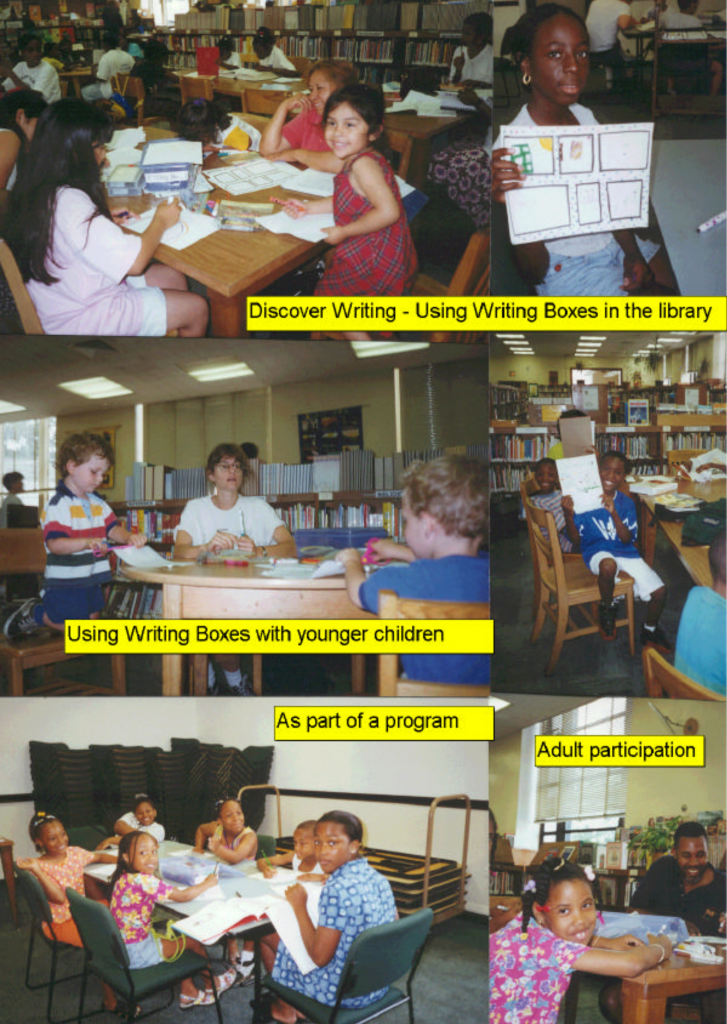Creating a Nonjudgmental Space
Tips for creating an appropriate and comfortable space for writing
-
- Set up the room with books, placed face out, on the related topic.
-
- Model the writing activity and verbalize why you are doing it: “I am drawing a map. Here is my house. I am writing ‘my house.’ I am listing who lives in the house. Paul and Lisa live in this house. What is across the street? The firehouse is across the street. I am writing ‘Firehouse.’”
-
- Stand back while writers are writing.
-
- Refrain from comparing or complimenting. (“I really like that.” “Isn’t Marly’s cartoon cute? Everyone look at Marly’s cartoon.”) These observations foster competition and comparison. Each child’s work is unique, and it is freeing to know their work is not being judged.
-
- Address the writer who wishes to share with an open question: “What would you like to tell me about your work?” “Would you like to read to me what you wrote?”
-
- Encourage adults to join in—not to observe, but to participate. You might say, “Mrs. Fox, is there anyone that you would like to send a letter to?”
-
- Encourage older children to help the younger ones at their table, but keep in mind that they should also have their own writing experiences.
-
- Have a dictionary or online spelling resource available, but encourage the children not to worry about spelling and don’t let them get bogged down by it. Remind them that we are writing, not editing.
-
- In the Writing Box program, there is no place for awards, ribbons, or prizes


